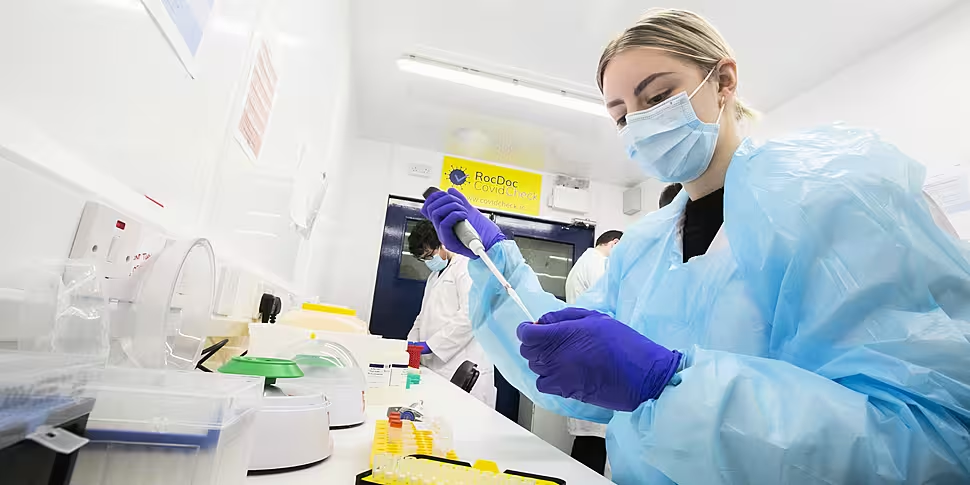Professor Aoife McLysaght has said the Government's Living with COVID plan has to present a strategy to people.
The Cabinet Sub-Committee on COVID-19 will today consider plans to re-open the country after the latest lockdown.
Schools are expected to return on a phased basis from March 1st, while level five restrictions are expected to be extended beyond March 5th.
It comes after 679 new cases of the virus and one associated death were confirmed here on Sunday.
While 744 people are receiving treatment in hospital, with 148 of these in ICU.
And latest figures show that as of February 18th, 326,475 doses of COVID-19 vaccine have been administered in Ireland.
Professor McLysaght, professor of genetics at Trinity College Dublin, told Newstalk Breakfast people need something to aim for.
"I'd really love to see a strategy - I don't think we've really seen one yet.
"I would hope that the Government - when they're talking about the future, the rest of this year, what do we do next, how do we move out of lockdown - I really would like to see that be based on epidemiological facts rather than just dates.
"I think we've made that mistake before where we set a target of a date.... rather than saying 'we'll try to achieve this in terms of case numbers'.
"I think we need to know that we're aiming for here, this is the problem at the moment: that it's very hard for people to buy into what's going on, because they're saying 'what is the point of what we're doing?'
"I'd like to see them actually going further in terms of what we're doing at the moment".
She said the Government should be encouraging more people to work from home, including public servants, and help people who need to isolate - such as adults living in shared accommodation.
And she suggested that regional re-openings - such as opening up Cork and Kerry, while leaving Dublin under lockdown - could be an option.
"If Cork and Kerry have really low cases... why not let Cork and Kerry have a different situation than Dublin?
"Dublin looks like the worst - Dublin will probably be the last part of the country to get things under control - but we can't force the rest of the country to sit in misery with us".
Health Minister Stephen Donnelly said on Sunday that the first mass vaccinations for COVID-19 showed there was "light at the end of the tunnel".
Around 1,000 people over the age of 85 were set to receive their first dose of the vaccine at a GP hub in Dublin City University (DCU).
He said it was a hugely positive development.
"It's been the most brutal, hard year for people with so much loss, so much suffering, and to see this today, this is the light at the end of the tunnel".
"Everyone who's been vaccinated here today will get their second dose in 28 days' time.
"Just talking to people here, talking about their hopes and how they're going to start getting on with their lives again is just wonderful."
And he said Ireland has one of the fastest rollouts of coronavirus vaccines in the EU.
"Ireland has one of the fastest vaccine rollouts in the EU," he said.
"People are very reasonably looking at the UK and saying they're ahead, and they are, we have to accept that.
"We are a member of the EU, we're going with the EU, and had we gone on our own, and as a tiny country tried to purchase millions and millions of doses of vaccine, it's not at all certain that we would have been able to do that, we would have been competing with the might of the EU."









